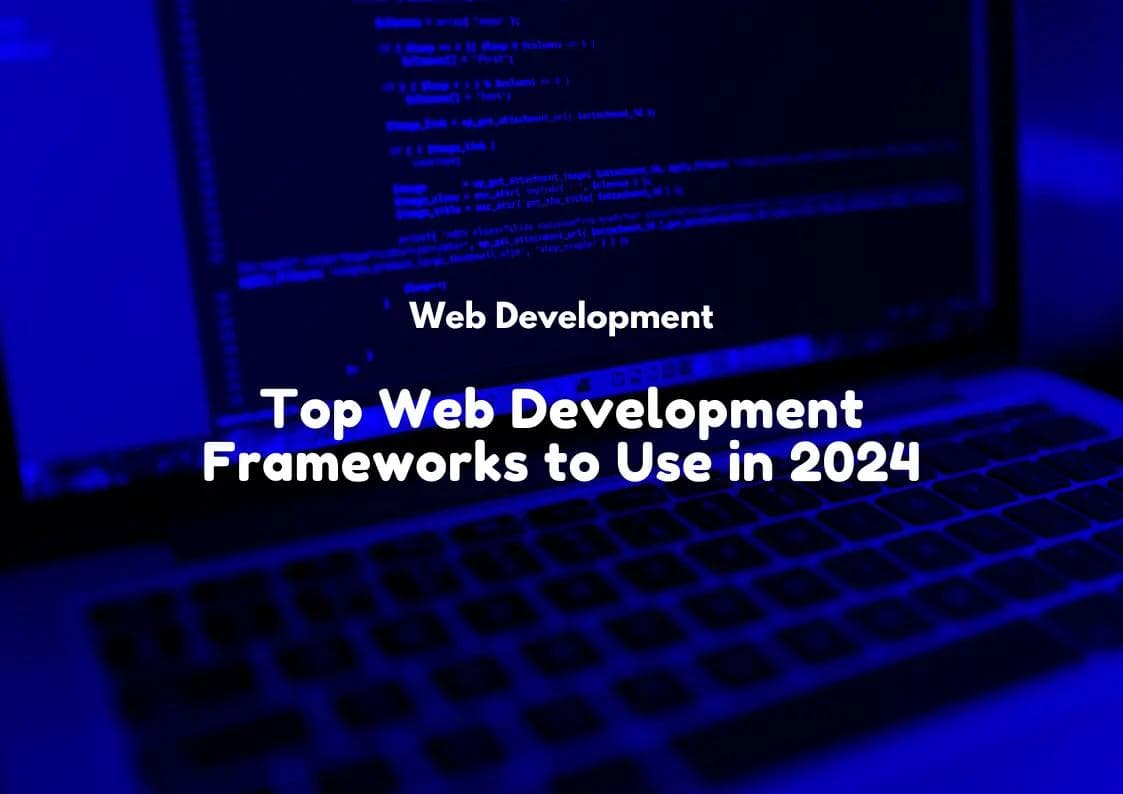Web development frameworks are essential tools for building robust and scalable web applications efficiently. Here are some of the top web development frameworks to consider in 2024:
1. React.js: React.js remains a dominant force in web development due to its flexibility and component-based architecture. Developed by Facebook, React allows developers to build interactive UIs with ease. Its virtual DOM improves performance, and a vast ecosystem of libraries and tools enhances development capabilities. React's popularity ensures a large community and extensive resources for troubleshooting and learning.
2. Angular: Angular, maintained by Google, is a powerful framework for building dynamic web applications. Its two-way data binding, dependency injection, and comprehensive tooling make it a preferred choice for large-scale projects. Angular’s robust architecture supports complex applications, and its CLI streamlines development tasks. The framework’s strong community and regular updates ensure it remains relevant and reliable.
3. Vue.js: Vue.js has gained significant traction for its simplicity and flexibility. It’s an excellent choice for both small and large projects due to its progressive nature, allowing developers to integrate it gradually into existing projects. Vue’s component-based architecture, reactive data binding, and extensive documentation make it accessible for developers of all skill levels. Its growing community and ecosystem of plugins enhance its functionality.

4. Next.js: Next.js, built on top of React, is a popular framework for server-side rendering (SSR) and static site generation (SSG). It simplifies the process of building fast and SEO-friendly web applications. Next.js offers automatic code splitting, optimized performance, and seamless integration with backend services. Its robust features make it ideal for building modern web applications with enhanced user experiences.
5. Svelte: Svelte is a unique framework that shifts much of the work to compile time, resulting in highly optimized and efficient code. Unlike traditional frameworks, Svelte updates the DOM surgically when the state of the app changes, leading to improved performance. Its simplicity and ease of learning make it an attractive option for developers looking to build high-performance web applications.
6. Laravel: For backend development, Laravel is a widely-used PHP framework that simplifies common tasks like routing, authentication, and caching. Laravel’s elegant syntax, extensive libraries, and built-in tools like Eloquent ORM make it a powerful choice for building scalable web applications. Its strong community and comprehensive documentation support developers throughout the development process.
7. Django: Django, a high-level Python framework, encourages rapid development and clean, pragmatic design. Known for its security features and scalability, Django includes numerous built-in tools for user authentication, content administration, and RSS feeds. Its "batteries-included" philosophy ensures developers have everything they need to build robust applications out of the box.
8. Ruby on Rails: Ruby on Rails, or Rails, is a popular server-side framework for building web applications with Ruby. Rails emphasizes convention over configuration, enabling developers to write less code while achieving more functionality. Its MVC architecture, extensive libraries, and active community make it a strong choice for building high-performance web applications.
In conclusion, the choice of a web development framework in 2024 depends on the specific needs of your project, your team's expertise, and the desired performance characteristics. These frameworks offer robust features, strong community support, and ongoing updates to help developers build modern, scalable, and efficient web applications.








